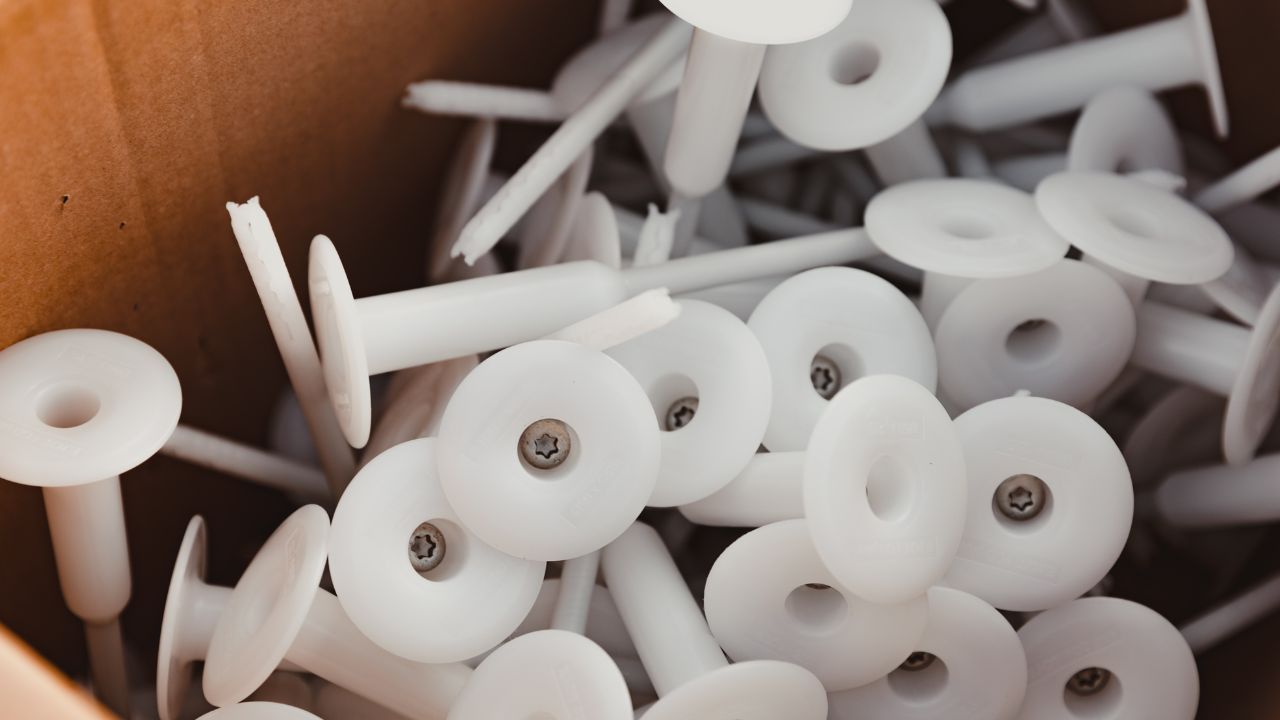

Evantlis integrates highly skilled professionals, vast experience, and modern equipment with semi-automated production lines to manufacture superior quality plastic components. As a leading plastic products company, we offer comprehensive services for design, tooling, prototyping, and mass production.
Comprehensive Services for Diverse Needs
Whether you need simple plastic components or complex plastic injection molding designs, our teams are happy to assist.
For all stages in the product development process from concept to production, we can help bring your injection molded plastic components to fruition, no matter how intricate or complex.
Material selection is critical for plastic injection molding companies. Our engineers help choose the right thermoplastic grade for your application. Many hygroscopic materials used in a engineering plastic factory absorb moisture, impacting component quality. Following ASTM D570 standards, proper drying ensures consistent, defect-free plastic parts.
The selection of a specific material depends on the desired characteristics, performance requirements, and the intended use of the injection molded part.
Good impact resistance, strength, and dimensional stability. Commonly used in automotive components, consumer goods, and electronic housings.
Excellent strength, wear resistance, and chemical resistance. Used in applications such as gears, bearings, and structural components.
High impact strength, optical clarity, and heat resistance. Commonly used in automotive components, electrical housings, and transparent parts.
Lightweight, good chemical resistance, and low moisture absorption. Widely used in packaging, automotive components, and household goods.
Versatile with variations like HDPE (High Density Polyethylene) and LDPE (Low Density Polyethylene). Used in packaging, containers, and various industrial applications.
Excellent chemical resistance, impact strength, and stiffness. Known for its high tensile strength and moisture resistance. Commonly used in packaging (bottles, containers), pipes, automotive components, and industrial applications
Lightweight, rigid, and cost effective. Commonly used in disposable packaging, consumer goods, and medical products.
Good chemical resistance, transparency, and dimensional stability. Commonly used in packaging, beverage containers, and electrical components.
Calibration of the injection molding machine to achieve optimum injection velocities and ensuring maintenance intervals every 500 hours contributes to process stability.
The cost of injection molding varies based on:
Parameters such as mold temperature, injection rate, and pressure are critical factors that need to be controlled to get the best quality of plastic components.
Injection speed is regulated for material feed and pressure ranging from 8000 psi to 20000 psi to pack the mold to avoid sink marks. Utilizing state-of-the-art machinery, compliant with ISO 9001:2015, our plastic factory outputs quality and long-lasting parts that conform to the most demanding specifications.
Maintaining consistent mold temperature in plastic injection molding improves part quality, optimizes cycle time, reduces warping and distortion, lowers reject rates, and enhances material flow and filling. We follow ASTM D3641 standards, controlling mold temperatures between 180°F and 220°F to ensure uniform cooling and prevent warping.
The injection mold design focuses on precision, achieving tolerances of ±0.02 mm, with regular maintenance every 100,000 cycles to maintain quality. Preventive maintenance includes cleaning, lubrication, and part replacements, while predictive analysis leverages data to prevent failures. Our technical team utilizes 3D CAD and industry expertise to develop practical, production-ready designs aligned with your business objectives. The outcome:
– Lower tooling costs
– Optimized product design for efficient manufacturing
– Functional, high-performance products
– CAD drawings for rapid prototypes if needed.
As a premier plastic products company, we handle every stage from concept to mass production:
– Concept Development: CAD-based design and feasibility analysis.
– Injection Mold Design: Detailed design ensuring manufacturability.
– Prototyping: Testing form, fit, and function.
– Design Refinement: Improvements from prototype feedback.
– Tooling: High-cavitation mold fabrication.
– Pilot Production: Small-scale runs to optimize processes.
– Full-Scale Production: High-volume manufacturing with advanced machines.
– Quality Control: Testing to ISO 9001 and ASTM standards.
– Final Inspection and Packaging: Thorough checks before delivery.
As a reputed plastic manufacturer, we ensure each stage meets stringent quality standards, distinguishing us among the leading plastic manufacturing companies.
Dimensional accuracy depends on material, tooling, product geometry, and surface finishes. Generally, the tolerance for most thermoplastics is ±0.2 to 0.5 mm. Surface finishes as fine as 0.0500 to 0.1000 µm can be achieved and verified through a surface profilometer. Rough or pebbled surfaces can also be produced as needed.
To achieve efficiency in injection molding of plastic components, the molders must be in a position to control the flow rate of the heated plastic to fill the cavity of the mold within a very short time, normally 95%-99%. It is very important to maintain the flow rate to retain the viscosity for smooth flow and adequate filling of the cavity particularly when processing engineering plastics.
As a leading plastic manufacturer, Evantlis specializes in insert molding, integrating metal or plastic components within molded parts. We excel in advanced injection mold designs, ensuring accurate insert placement and material distribution. Our state-of-the-art machines ensure precise injection to encapsulate inserts uniformly, handling diverse materials like engineering plastics. We rigorously control parameters such as temperature and pressure, addressing challenges like differential thermal expansion through simulation software. Evantlis stands out among plastic manufacturing companies for our expertise and reputation in insert molding.
Stringent Quality Control Measures
Utilizing cutting edge metrology tools, such as Coordinate Measuring Machines (CMMs), ensures that injection molded parts meet tight tolerances and adhere to strict quality standards. Raw material batches are tested at independent labs to confirm grades of polymer prior to production.
Standards and Testing
At Evantlis, we make sure that the plastic components that we produce through our state of the art plastic injection molding machines meet the highest quality standards. Our adherence to ISO 9001 and ASTM standards underscores our commitment to excellence. ASTM D638 guides our testing for tensile properties, critical for assessing material performance.
Surface finishes are measured using profilometers in accordance with ISO 4287. Material characteristics are evaluated according to ASTM procedures, for instance, ASTM D256 for impact strength and ASTM D648 for heat distortion temperature.
Any plastic components that do not meet these exacting standards are rejected and subjected to a thorough root cause analysis.
Customization and Rapid Prototyping
We provide technical innovation through rapid prototyping services in injection molding, enabling quick design iterations and development phases. This accelerates time to market for new plastic components and ensures adaptability to changing project specifications.


Statistical Process Control (SPC)
Statistical Process Control (SPC) techniques facilitate comprehensive data evaluation and ongoing enhancement in injection molded parts manufacturing. SPC involves constant checking on vital factors such as temperature, pressure and the rate of injection, to guarantee that the processes do not deviate a lot and thus reduces defects. This approach makes it possible to intervene as soon as a deviation is detected, and to take actions before a result is reached, thus optimizing the process’s performance and improving the quality of the products that are delivered.
Customer Support and Collaboration
Our end-to-end service approach ensures comprehensive support from initial consultation to post-production. As a leading plastic manufacturer, we provide expert guidance on injection mold design, leveraging advanced CAD software to create precise plastic components. Our services encompass prototyping, insert molding, and full-scale production, adhering to ISO and ASTM standards.

